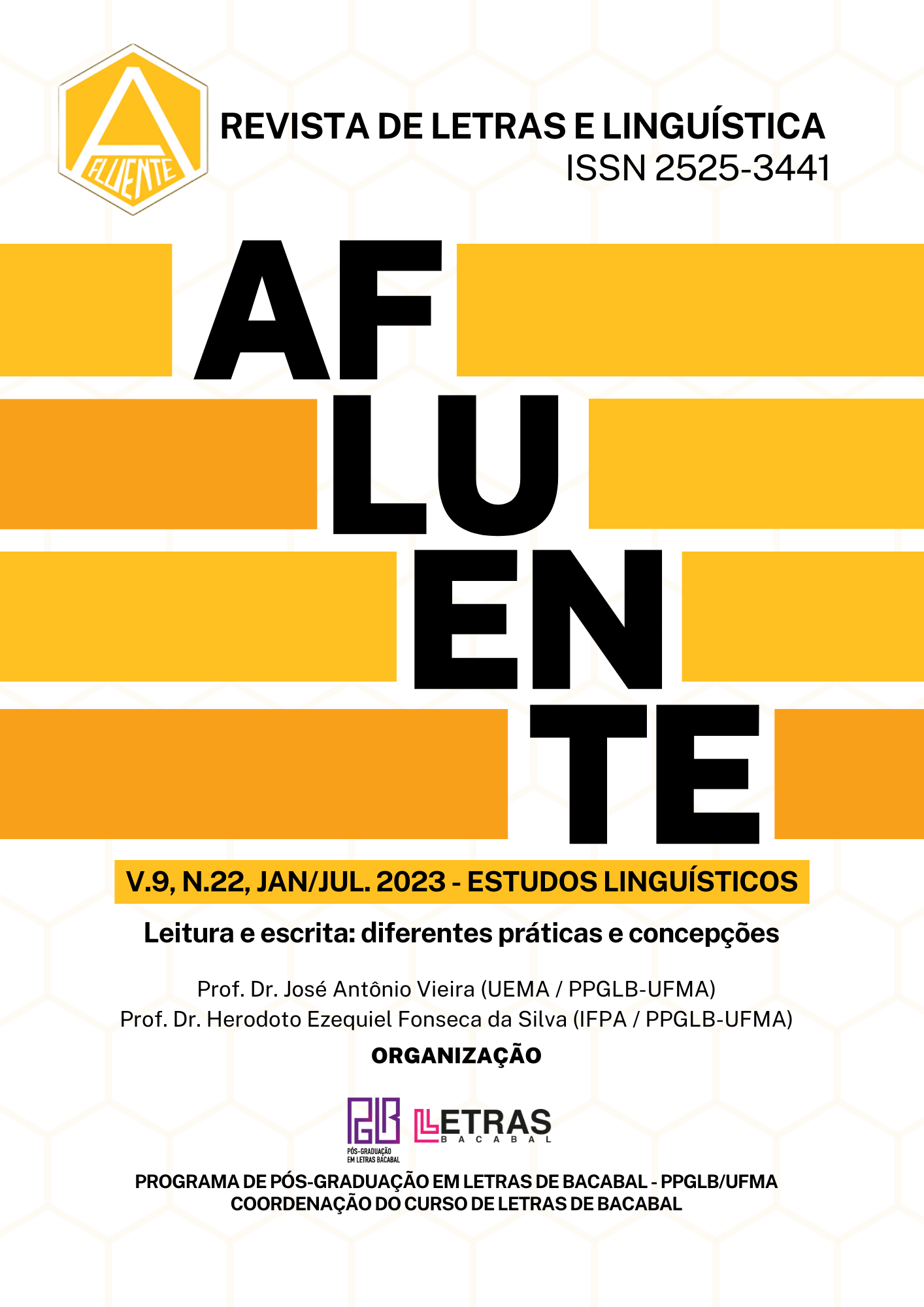A DISCURSIVE READING OF "A TRISTE PARTIDA" (THE SAD DEPARTURE)
DOI:
https://doi.org/10.18764/2525-3441v8n23.2023.30Keywords:
Discourse Analysis, Reading, Imaginary formation, InterdiscoursesAbstract
The cordel literature is representative of Brazilian popular culture, especially from the Northeast. One of its greatest and most recognized representatives is Antônio Gonçalves da Silva, known as Patativa do Assaré. His poetic work presents strong marks of regionalism and, through a simple language, narrates everyday situations and common aspects of the Northeastern hinterland. Considering these aspects, this work aims to analyze the poetic writing of "A triste partida" (The Sad Departure), whose theme is the emigration of Northeastern people to Southeastern Brazil. Through this analysis, we aim to answer the question: how is the Northeastern migrant portrayed in the poetic discourse of "A triste partida" by Patativa do Assaré? The objective of this reading is to analyze, through the discursive constitution of the image of the Northeastern migrant, how the discourse of social criticism materializes in the poem. As specific objectives, we intend to reconstitute the image of the Northeastern migrant in cordel, using the concept of imaginary formation as a reference; investigate if other discourses cross the discourse about immigration in the cordel "A triste partida"; and finally, examine if the discourse of social denunciation is present in the cordel. The corpus consists of the poem "A triste partida", which was analyzed based on the theoretical-methodological assumptions of Discourse Analysis. Thus, this research is based on the works of Pêcheux (2009, 2014, 2015, 2015a, 2016), Orlandi (2012, 2012a), and Brandão (2004). While reading the poem, we observed the presence of different discourses such as religious, social class, patriarchal, and immigration, in passages of the poem that express beliefs and experiences lived by the subject.
Downloads
References
ALTHUSSER, Louis. Aparelhos Ideológicos de Estado: notas sobre os aparelhos ideológicos de Estado (AIE). Rio de Janeiro: Edições Graal, 1985.
ASSARÉ, Patativa do. Cordéis e outros poemas. Fortaleza: Edições UFC, 2006.
BRANDÃO, Helena H. Nagamine. Introdução à análise do discurso. 2. ed. Campinas, SP: Editora da UNICAMP, 2004.
ORLANDI, Eni Puccinelli. Discurso e Texto: formulação e circulação dos sentidos. 4. ed. Campinas, SP: Pontes Editores, 2012.
ORLANDI, Eni Puccinelli. Análise de Discurso: princípios e procedimentos. 10. ed. Campinas, SP: Pontes, 2012a.
PECHEUX, Michel. Semântica e discurso. 4. ed. Campinas, SP: Editora da UNICAMP, 2009.
PECHEUX, Michel. Análise automática do discurso (AAD-69). In: GADET, F.; HAK, T. Por uma análise automática do discurso: uma introdução à obra de Michel Pêcheux. 3. ed. Campinas, SP: Editora da Unicamp, 2014.
PECHEUX, Michel. O discurso: estrutura ou acontecimento. 7. ed. Campinas – SP: Pontes, 2015.
PECHEUX, Michel. Análise do discurso. 4. ed. Campinas, SP: Pontes Editores, 2015a.
PECHEUX, Michel. Abertura do Colóquio. In: CONEIN, Bernard; COURTINE, Jean-Jacques; GADET, Françoise; MARANDIN, Jean-Marie; PÊCHEUX, Michel (Org.). Materialidades discursivas. Campinas, SP: Editora da Unicamp, 2016.
Downloads
Published
How to Cite
Issue
Section
License
Copyright (c) 2023 Afluente: Revista de Letras e Linguística

This work is licensed under a Creative Commons Attribution 4.0 International License.
Direitos autorais Afluente: Revista Eletrônica de Letras e Linguística
Este trabalho está licenciado com uma Licença Creative Commons - Atribuição 4.0 Internacional.














